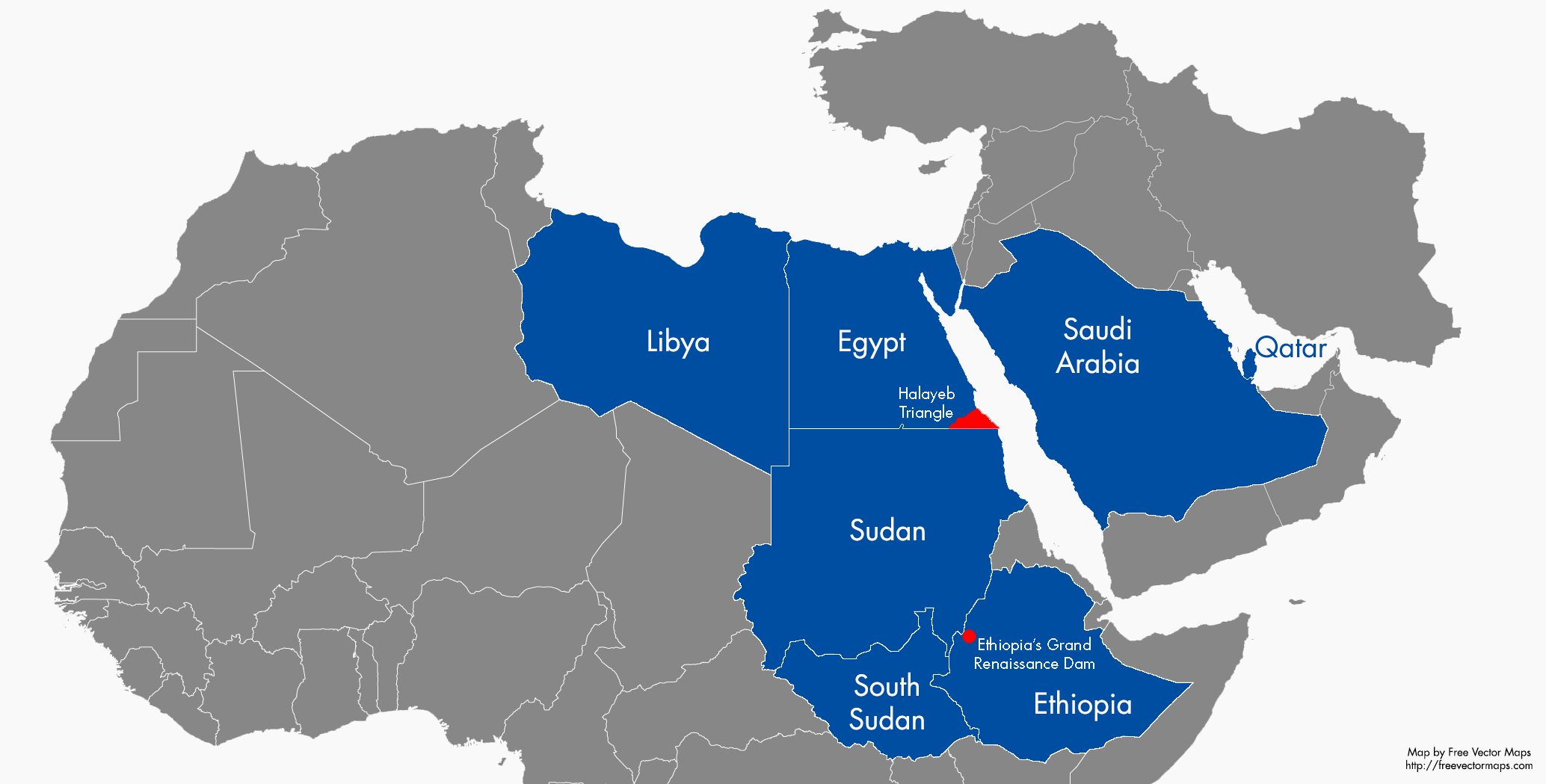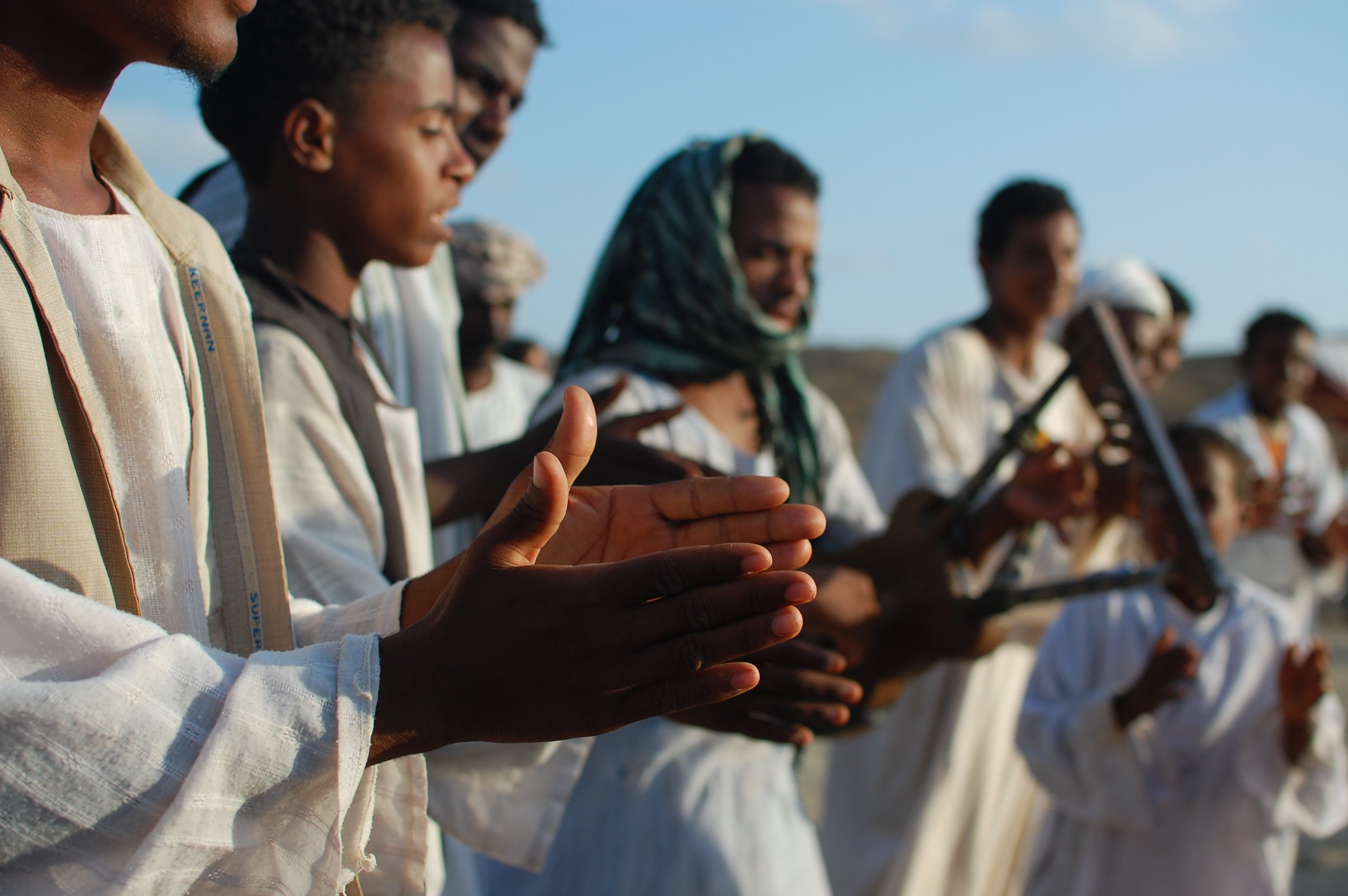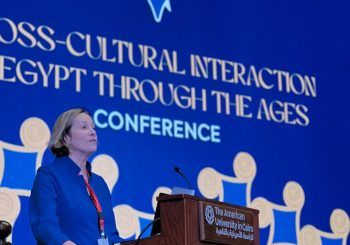An air of mistrust and intrigue plague the Egyptian-Sudanese border regions, for decades, the Halayeb-Shalateen Triangle has been a source of entrenched political difference and conflict. Caught in the crossfire are border communities who are determined to push for regional stability, however, tensions continue to clout relations between Cairo and Khartoum.
Tensions over border security and regional stability had prompted sudden public interest and attention on the issue of Halayeb and Shalateen.
According to a report by the Carnegie Middle East Centre “The Egypt-Sudan Border: A Story of Unfulfilled Promise”(2020), a rapid increase in illicit trafficking following the Sudanese uprising of 2018-2019, and erratic changes in Sudanese policy concerning the Grand Ethiopian Renaissance Dam (GERD) raised alarm bells in Egyptian media outlets and in the public sphere.
An Account of Mutual Distrust

The Halayeb and Shalateen Triangle comprises an area of 20,000 square kilometres and includes several towns, notably Halayeb, Abu Ramad, Ras al-Hadariya, Marsa Hamira and the town of Abraq. The area is inhabited by Nubians, as well as nomadic tribes, namely El Ababda and Bashriyya accounting for a population of 27,000.
A once isolated and remote region in Egypt, the Halayeb and Shalateen Triangle, is now attracting an abundance of adventurers looking to experience the area’s unique culture and untouched wilderness.
However, since the independence of Sudan in 1956, the region has been an arena for sustained discord and political instability. Arguments over colonial land allocations stipulated in the Sudan Agreement (1899) have fuelled on-going disagreements.
From then on, Egypt would continue to support and implement the political boundaries established in the Sudan Agreement (1899). This would mark the beginning of Egypt’s territorial control over the Halayeb and Shalateen Triangle, and the spark of Sudanese resistance and opposition.
Conflicts over electoral jurisdiction and sporadic unilateral declarations of sovereignty would put immense strain on local livelihood and stifle trade. Sherif Mohyeldeen, a non-resident scholar on Egypt and North Africa Cross Border Issues at the Carnegie Middle East Center, believes that “restrictions placed on border relations and cross-border population movement, which have enhanced illicit trade and negatively affected border communities.”
Most recently, in January 2021, Sudan filed a complaint to the United Nations Security Council requesting international intervention to restore their own sovereignty over the region.
Cairo has been persistent in rejecting any claims of Sudanese sovereignty made by Khartoum over Halayeb and Shalateen. The region represents an indispensable military outpost on the southern Red Sea for Egypt, leading strategic depth and helping safeguard national security.
According to Samir Ghattas, a former Egyptian member of parliament and head of the Middle East Forum for Strategic Studies “it is highly unlikely that Egypt would give up territories in the Halayeb and Shalateen area to the benefit of Sudan.”
Ghattas continued to stress the geopolitical importance of the region, explaining that the area provides strategic depth for Egypt on the southern Red Sea coast which is vital for safeguarding national security. However, he believes that Egypt might favour the establishment of a bilateral agreement which would give the Sudanese government limited access to the region in question.
A Battle of Wills

Rich in natural minerals, gold and with potential offshore oil and gas reserves, the region also has an attractive mining status. Both Egypt and Sudan have expressed specific interest in offering concessions for oil and gas exploration.
Last year, the Sudanese Ministry of Energy and Oil had published an updated concessions map which had included the Halayeb and Shalatin Triangle as an area available for bidding by international investors. Interestingly, the Egyptian government remained without objection as ongoing political and economic developments in the region may have made Cairo hesitant to adopt a reactionary policy towards the Sudanese government.
As Khartoum is playing a crucial mediating role in the conflict over water rights to the River Nile. The construction of Grand Ethiopian Renaissance Dam (GERD) has threatened both Egyptian and Sudanese water security. An integrated, and coordinated approach from Cairo and Khartoum is required to find an adequate diplomatic solution with Ethiopia.
Yasir Abbas, the Water Resources Minister in Sudan, stated that “without an agreement, the GERD is really a threat to the people downstream… both the environment and the livelihoods of the people.”
Recently, the convergence of Egyptian and Sudanese policies on the issue of GERD has meant that Cairo is becoming more cooperative in providing concessions for Halayeb and Shalateen.
Former Egyptian Deputy Foreign Minister for African Affairs, Mona Omar, maintains that “settlement in relation to the Halayeb and Shalateen area was expected in a bid to thwart any external attempts to drive a wedge between the two countries.” The influence of local communities in the region has equally worked to bridge differences between the Egyptian and Sudanese governments.
Indigenous Resistance

Strong kinship, tradition and culture connect local tribal communities to the disputed territories, along with deep-rooted historical foundations. Ababda, Bashariya and Nubian tribes, on both sides of the border, have consistently lobbied for open border crossings to improve local livelihoods and enhance bilateral trade. The resumption of trade, and facilitation of border crossings had, for sometime, contributed to a less antagonistic atmosphere. However, strict visa restrictions and unreliable border operations have hampered relations between respective regimes in Cairo and Khartoum.
According to the Carnegie Middle East Center report (2020), a prominent Nubian leader was adamant that “there is absolutely no dispute or conflict within our community toward the Sudanese. We are, and always have been, brothers and sisters. Yet, all the disputes in media outlets between the two countries are, and always have been, political disputes between the two regimes over their agendas and interests, not at all those of the people.”
The involvement of local communities has been vital in easing tensions; tribal leaders have consistently encouraged cooperation between both states. However, the promise of lucrative trade agreements, stability and regional cooperation have not been sufficient to invoke constructive political action.
Both Cairo and Khartoum continue to claim sovereignty over the Halayeb and Shalateen Triangle to this day. A spokesperson from the Sudanese Ministry of Foreign Affairs confirmed that Sudan has decided to resort to international arbitration to restore territorial governance over the region.
Moreover, the impact of COVID-19 on Egypt’s tourism sector and the on-going instability in Sudan following Bashir’s removal from office has created immense strain on bilateral relations.
Currently, existing economic and political challenges facing both countries are leading to strained border relations. In a state of perpetual motion, the conflict over Halayeb and Shalateen seems destined to remain in limbo, confined to government hallways of Cairo and Khartoum until further notice.






Comments (4)
[…] حلايب وشلاتين: في مرمى نيران العلاقات المصرية السوداني… […]
[…] حلايب وشلاتين: في مرمى نيران العلاقات المصرية السوداني… […]